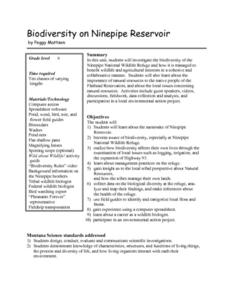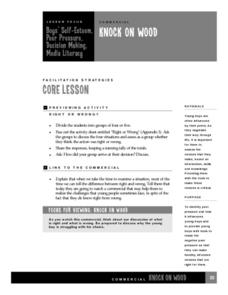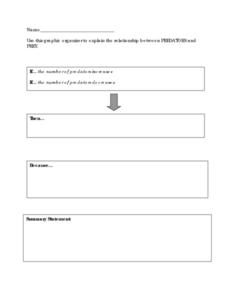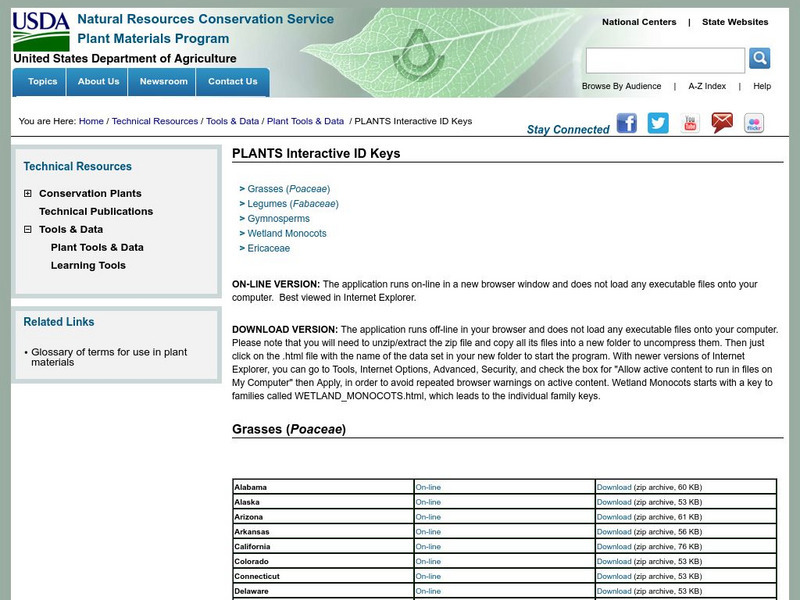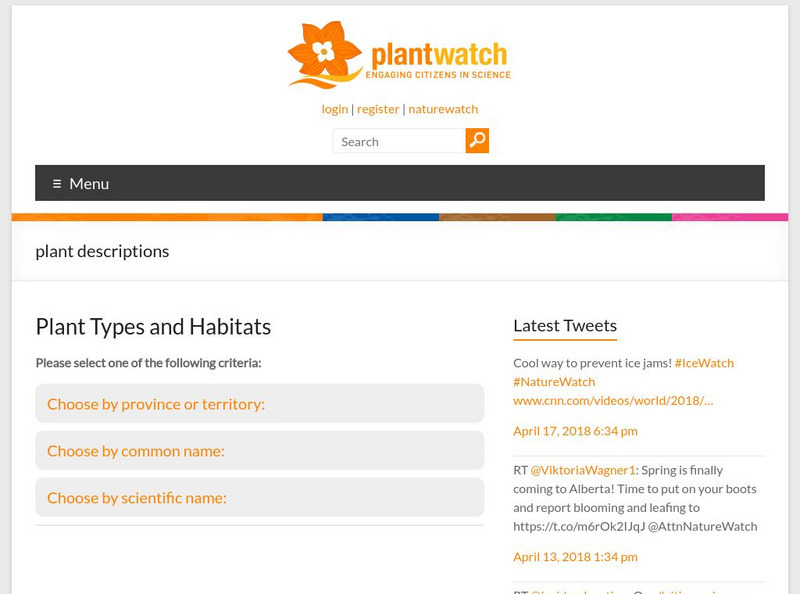Curated OER
Renewable vs. Non-Renewable Resources
Fifth graders, after brainstorming why conservation of resources is important, distinguish between renewable and non-renewable resources. They make a list of different types of natural resources on the board and then sort them into two...
Curated OER
Fall vs. Spring
Students learn about fall and spring by engaging in hands-on activities in order to fulfill science and language arts standards. In this instructional activity on seasons, students first listen to a story about fall, discuss the...
Curated OER
Circle the nouns
In this nouns worksheet, students circle the nouns they see in the sentences. Students have 48 sentences to find the person, place, or thing.
Curated OER
Create a Family Crest
Students create their own family crest using prior knowledge and Japanese and Native American examples of symbolic art. Lesson extensions include the creation of a school crest or woodblock examples of crests.
Curated OER
Bellwork April 12-16
In this bellwork worksheet, students answer questions about the Paleozoic and Mesozoic eras. They answer questions about fossils, half life, and radioactive material.
Curated OER
Bringing Up Birdy
Young scholars explore biology by creating diagrams of animal life cycles. In this baby bird lesson plan, students view video clips of birds being born from incubation to flying on their own. Young scholars utilize the Internet to...
Curated OER
Biodiversity on Ninepipe Reservoir
Sixth graders complete a unit about the biodiversity at the Ninepipe National Wildlife Refuge. They view a video, conduct an interview with a tribal wildlife biologist and a federal wildlife biologist and compare the two, collect and...
Curated OER
Knock On Wood
Students investigate the trees of the Mississippi Valley, specifically looking at the coniferous and deciduous forests. The research of the area is part of a field study when students conduct a survey of local forests in order to create...
Curated OER
Predators and Prey
Students explain how the food chain works. They contrast predators with prey and describe their function in nature. Students discuss how the food chain aids in keeping nature balanced. In small groups, they play a game that simulates the...
Curated OER
The Theory of Evolution
In this theory of evolution worksheet, students will review the role Charles Darwin played in the theory of evolution, natural selection, and adaptations. Students will explore some of the different types of evidence for the theory of...
Curated OER
Preparing the Soil
Students explore philanthropy through literature. In this service learning lesson, students consider character traits as they read Seedfolks. Students record their notes regarding the characters in the story of a community garden in...
Curated OER
Plant Galls
Students study what a plant gall is and the different types that there are. In this plant instructional activity students examine what causes galls and how to prevent them.
Curated OER
Planting the Seed
Students plant their seeds and collect and organize their own materials for planting. They also set up their planters with wicks, fertilizer, potting mix, and seeds. Finally, students write their names on planter markers with a ball...
Curated OER
Archaeobotany
Students study pictures of seeds and the conditions in which they grow during their study of archaeobotany. They infer ancient plant use by looking at archaeobotanical samples. They determine the change of plant use by interpreting a...
Curated OER
Explorit's Green Salad Quiz
In this food history worksheet, students read the information about the history of food and salads. Students select the correct answer for the 6 related questions.
Curated OER
Dig Magazine Archeology Quiz #106
For this Dig Magazine archeology quiz, students answer 12 multiple choice questions complementing the October 2009 issue. Page contains answer and additional resources link.
Curated OER
Think Green
Students experience and practice compositing and recycling through hands-on-activities. They distinguish between which items from their trash can be recycled, composted and reused. The process for making recycled paper is also covered in...
University of Florida
Florida Museum of Natural History: Plant Life
This teacher's guide focuses on the fascinating world of plants. Through books and other print materials, and exploration of actual plants, children will identify plants as living things, examine the parts of plants, experiment with what...
US Department of Agriculture
Us Department of Agriculture: Plants Interactive Id Keys
A database of information about plants across the United States and how to identify them. Covers grasses, legumes, gymnosperms, wetland monocots, and the Ericaceae flowering plants. The information is contained in downloadable zip files,...
Soft Schools
Soft Schools: Flower Anatomy
Identify the major parts of a flower. Select each part name and drop in the boxes next to the full-color diagram.
Other
Plant Watch: Plant Descriptions
The page, "Plant Descriptions," will lead you to detailed information on various plants that are native to a particular province. Just select the province you are most interested in, and a list of species native to that province will...
HotChalk
Hot Chalk: Lesson Plans Page: Plants and Animals
In this lesson plan, young students will be able to identify a plant's parts, explain their functions, diagram a plant, and create a mobile to demonstrate their understanding.
ClassFlow
Class Flow: Living Things Plants
[Free Registration/Login Required] This flipchart identifies and explains the function of main parts of a plant. It includes various activities for students using the Activboard tools.
Other
Camp Silos: Exploring the Prairie
An excellent site for studying the Iowa prairie. Offers wonderful facts and interactive activities for students to do individually or as a group. Identifies national standards and lesson plans for the teaching of prairie life. Provides...








